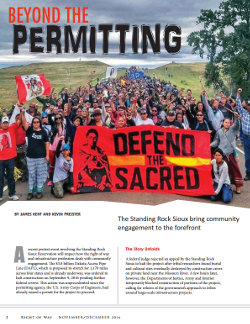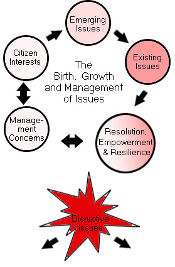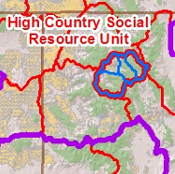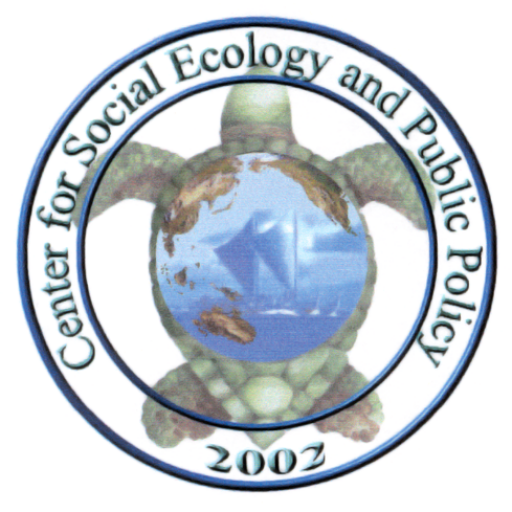The Center for Social Ecology and Public Policy (CSEPP), Inc.
Learning community first for effective project, program and policy success
256 Sixth Street
Ashland, Oregon 97520
(541) 601-4797
www.csepp.us
The Center for Social Ecology and Public Policy (CSEPP) is a non-profit organization devoted to enhancing productive harmony, the balance of people and nature called for in the National Environmental Policy Act (NEPA). CSEPP is dedicated to individual empowerment through the maturing of natural systems present in all human communities. These natural systems are a pathway for direct participation of citizens in the creation, ownership and management of public policy. Natural systems are the informal networks that operate in communities and the formal bodies that are in alignment with these informal networks. They are place-based, geographically-centered, and are responsible for caretaking, survival, and cultural beliefs, traditions, and practices. When public policy grows out of social ecology defined in these terms, productive harmony is enhanced through the integration of bio-physical and social ecosystems, resulting in efficient application and mobilization of human, monetary, social, and natural capital.
Focus areas of the Center for Social Ecology and Public Policy
Energy and Right-of-Way

Alleviate project opposition before disruption occurs
CSEPP builds collaborative relationships at the heart of where public opinion forms: within the informal culture of a community. Rooted in the culture of a place, we facilitate meaningful community input in projects from planning through implementation.
More InfoSocial Service Delivery

Co-create solutions with program participants
In a climate of dwindling budgets and ballooning client loads, CSEPP enhances the ability of local residents to make civic government work for them but also the capacity of administrators to recognize and respond to changing social conditions that impact program effectiveness.
More InfoNatural Resource Decision Making

Breathe life into management plans with cultural wisdom
How do people understand and take care of their bio-physical environments? How do we accommodate their knowledge of the land into decisions about future management? CSEPP’s clients integrate cultural knowledge while maintaining healthy ecosystems.
More InfoExplore community engagement best practices
CSEPP Executive Director, Dr. Kevin Preister, addresses industry leaders on community engagement best practices in a presentation entitled “Citizen Engagement to Manage Social Risk,” delivered to the Society for Petroleum Engineers.
Read about CSEPP’s approach in the International Right-of-Way Association magazine
Today, there is a paradigm shift underway toward geographic democracy, where citizens are taking over what happens in their physical space. As a result, the new indicator of a company’s success will be measured by the goodwill it builds and maintains within the communities it impacts.

In collaboration with James Kent Associates, the principles of effective community engagement, social risk reduction, and issue management are regularly featured in the International Right-of-Way Association’s magazine. Authors James Kent and Kevin Preister discuss current events from the standpoint of social ecology and CSEPP’s unique approach to community engagement.
Services for businesses, foundations, and governments
Issue Management: A method of minimizing surprise and disruption

Surprise and disruption are averted by creating a predictable, natural process of communication and action. It is a process of identifying issues in a community and organization and responding to them in a way that addresses the health and integrity of both the community and the proponent of change.
More on Issue ManagementCommunity Assessment
CSEPP offers three levels of community assessment:
- Situational Assessments: Description of local communities and a heads-up on citizen issues which will affect the project.
- Community Assessments: Thorough mapping of community assets, informal networks, and institutional organizations.
- Social and Economic Analyses and Mitigation: Impacts of proposed major actions are analyzed for expected social and economic effects as per the requirements of an Environmental Impact Statement (EIS).
Community Engagement Training
With CSEPP’s on-site, field-based training your organization can:
- Learn how to predict, identify and use trends to strengthen the organization’s service to the communities they impact
- Advance culture-based strategies that optimize project ownership within the communities
- Develop authentic, face-to-face relationships that result in long-term partnerships and resilient communities
- Enhance community well-being in the course of accomplishing organizational missions
Human Geographic Mapping

Human Geographic Maps depict specific bio-social ecosystems and portray the attachment people develop to each other and to the land where they live and work. Social, cultural and economic routines along with the geographic features of an area distinguish one population or cultural area from another.
Explore the maps![/section]
[/sections]

